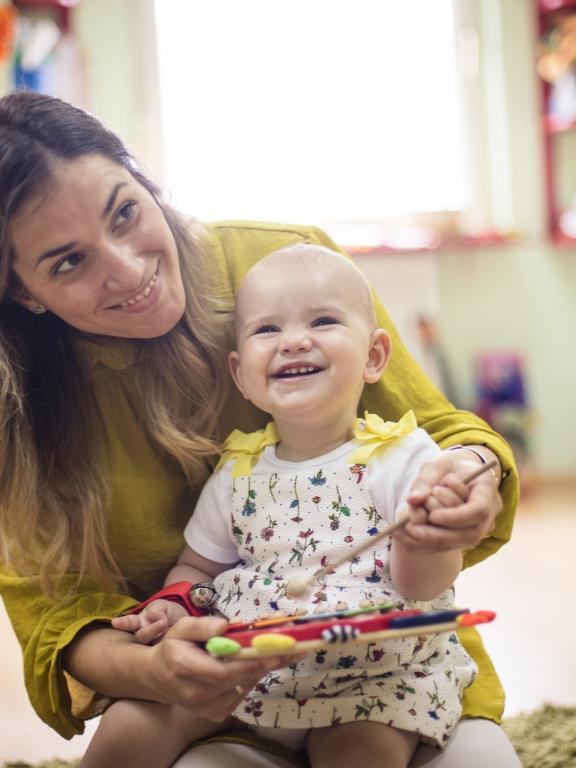Our short-term Infant/Toddler Care certificate program will provide you with the foundation you need to begin working with infants and toddlers. Upon completion, you will have 16 credits which can be applied to the Early Childhood Education diploma or degree program.
You will also be eligible to apply for the National Child Development Associate Infant/Toddler credential provided through the Council for Professional Recognition in Washington, DC. Students must earn a C or better in all courses. These courses count for the 120 hours of professional education requirement. Additional requirements for the CDA must also be met prior to applying. See your advisor for more details or visit http://www.cdacouncil.org.
This is a certificate program and requires fewer credits and less time to complete than a degree or diploma program. Certificate programs can be taken alone but are often taken along with other Early Childhood Education programs.
The Early Childhood Education program also offers degree, diploma, and additional certificate options.
Learn more about this program’s student outcome data.
*Practicums must have prior approval and observations conducted at an educational institution.
Skills You’ll Learn
The Early Childhood Education program is focused on job-related skills in the following areas:
- Understanding child growth and development, physical/nutritional needs of children, care and guidance of children, and communication skills with parents and children
- Mastering cognitive/language, physical/motor, social/emotional, and creative development of young children
Career Opportunities
There are many employment opportunities for Early Childhood Education graduates, including:
- Childcare programs
- Private preschool programs
- Recreational centers
- School-age programs
Additional Information
- Most career opportunities in child care require you to pass the NC Division of Child Development and undergo a fingerprint and Early Education background check
- You must complete EDU 119 with a grade of C or higher in order to be eligible for the NC Childcare Credential
- Public schools require 40 credits hours to be a teacher assistant (Craven County also requires a bus driver’s license)
Plan of Study
The recommended course sequence for this program and a complete list of related classes are available in the Academic Catalog. Click the button below to view a copy of this plan of study, which is also available as a PDF.
